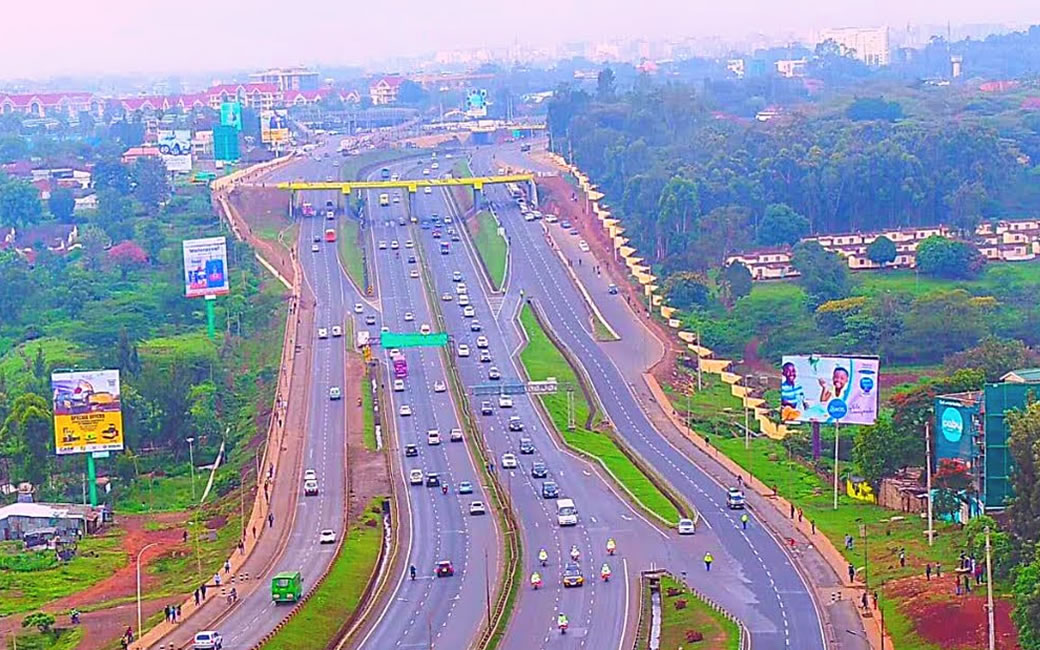Renting a car in East Africa can be an exhilarating experience, offering freedom and flexibility to explore the region’s diverse landscapes and cultures at your own pace. However, navigating the rental process requires careful consideration to avoid potential pitfalls that could impact your journey. Understanding what to avoid when renting a car in East Africa is crucial for ensuring a smooth and enjoyable travel experience. By being aware of common challenges and pitfalls, travellers can make informed decisions to mitigate risks and maximize their adventure on the road.
- Not Reading the Rental Agreement Thoroughly
One of the most critical mistakes travellers make when renting a car anywhere, including East Africa, is not thoroughly reading the rental agreement. This document outlines important details such as insurance coverage, rental duration, fees, and any restrictions or conditions imposed by the rental company. Here are key aspects to pay attention to:
- Insurance Coverage: Understand what insurance is included in the rental agreement. Basic coverage typically includes Collision Damage Waiver (CDW) and Third-Party Liability Insurance. However, there may be limitations or exclusions, such as deductibles for damage or theft, and restrictions on certain types of activities like off-road driving or driving at night.
- Additional Fees: Check for any additional fees or charges, such as airport surcharges, extra mileage fees, or fees for additional drivers. These can significantly impact the total cost of your rental.
- Fuel Policy: Understand the fuel policy of the rental company. Some companies provide a full tank and expect you to return the car with a full tank, while others may offer different options like prepaid fuel or allowing you to return the car with the same amount of fuel as when you picked it up.
- Vehicle Condition: Before accepting the rental car, inspect it thoroughly for any existing damage, scratches, dents, or mechanical issues. Ensure that all damages are documented in writing and agreed upon with the rental company to avoid disputes over responsibility when returning the vehicle.
- Rental Duration and Return Policies: Know the exact rental duration and the terms for returning the vehicle. Late returns could incur additional charges, and understanding the grace period, if any, is crucial to avoid unexpected fees.
- Neglecting Insurance Considerations
Insurance is a crucial aspect of renting a car, especially in East Africa where road conditions and driving norms may differ from what you’re accustomed to. While basic insurance coverage is typically included in rental agreements, it may not provide comprehensive protection in all situations. Here’s what to consider:
- Review Existing Insurance Coverage: Before opting for additional insurance from the rental company, check what coverage you already have through your personal auto insurance policy, credit card benefits, or travel insurance. Your personal auto insurance policy at home may extend coverage to rental cars, but it’s essential to confirm whether it applies to international rentals and covers the specific region of East Africa.
- Credit Card Coverage: Some credit cards offer rental car insurance as a benefit if you pay for the rental using that card. This coverage often acts as secondary insurance and may have limitations or exclusions, such as vehicle types or rental durations. Review the terms and conditions of your credit card coverage to understand its applicability and any requirements.
- Consider Additional Insurance Options: Depending on your assessment of existing coverage and the specific risks of driving in East Africa, consider purchasing additional insurance from the rental company. This may include:
- Supplemental Liability Insurance: Provides higher coverage limits for third-party liability beyond the basic insurance included in the rental agreement.
- Personal Accident Insurance: Covers medical expenses for you and your passengers in case of injuries sustained in a car accident while driving the rental vehicle.
- Collision Damage Waiver (CDW) or Loss Damage Waiver (LDW): Reduces or eliminates your financial liability for damage to the rental vehicle. CDW typically covers damage due to collision, while LDW may offer broader coverage or lower deductibles.
- Choosing the Wrong Type of Vehicle
East Africa’s diverse landscapes include well-maintained highways, rugged terrain, and remote areas that may require specialized vehicles. Choosing the wrong type of vehicle for your itinerary can lead to discomfort, safety concerns, or additional costs. Consider the following factors when selecting a rental vehicle:
- Terrain and Road Conditions: If you plan to explore national parks, go on safaris, or travel off the beaten path, opt for a vehicle suitable for rough terrain. A 4WD (four-wheel-drive) vehicle is often recommended for navigating unpaved roads and challenging conditions.
- Group Size and Comfort: Ensure that the vehicle you choose can accommodate your group comfortably along with luggage or equipment. Compact cars may be suitable for city driving but may not have enough space for long journeys or larger groups.
- Fuel Efficiency: Consider the fuel efficiency of the vehicle, especially if you plan to cover long distances. Fuel stations may be sparse in remote areas, so choosing a vehicle that offers good mileage can save you time and money.
- Size and Manoeuvrability: In urban areas with narrow streets or crowded markets, a smaller vehicle may be more practical and easier to manoeuvre than a larger SUV or van.
Taking into account your specific travel plans and the terrain you intend to cover will help you choose a rental vehicle that meets your needs and enhances your overall experience in East Africa.
- Underestimating Road Conditions and Navigation Challenges
Navigating East Africa’s roads requires preparation and awareness of potential challenges:
- Road Conditions: Be prepared for varying road conditions, including paved highways, potholes, gravel roads, and sections under construction. Drive cautiously, especially in rural or remote areas where road maintenance may be limited.
- Navigation: GPS navigation systems or mobile apps with offline maps can be invaluable for navigating unfamiliar roads and finding your way to destinations. While major cities and tourist destinations typically have well-marked roads, signage can be limited in rural areas or smaller towns.
- Traffic and Driving Habits: Familiarize yourself with local traffic laws, speed limits, and driving customs. Avoid driving at night, if possible, as road conditions may be more hazardous, and visibility can be reduced, especially outside urban areas.
- Plan Your Route: Before setting out, plan your route, including rest stops, fuel stations, and potential accommodations along the way. Allow extra time for unexpected delays, such as road construction or heavy traffic in urban centres.
- Overlooking Safety and Security Measures
Safety should be a top priority when renting and driving a car in East Africa:
- Vehicle Security: Park in secure, well-lit areas whenever possible, especially overnight or in urban areas. Avoid leaving valuables visible inside the car, as theft can be a concern in some regions.
- Personal Safety: Be aware of your surroundings and exercise caution, especially in crowded or unfamiliar areas. Avoid displaying large amounts of cash or valuables and be cautious when interacting with strangers.
- Emergency Preparedness: Carry a basic emergency kit in your rental vehicle, including a first aid kit, flashlight, spare tire, and tools for minor repairs. In remote areas, where assistance may be limited, having these essentials can be crucial in case of breakdowns or emergencies.
- Driving Responsibly: Follow local traffic laws and regulations, including speed limits, seatbelt requirements, and rules against drinking and driving. Respect wildlife and pedestrians, especially in rural or national park areas where animals may cross roads unpredictably.
By prioritizing safety and taking precautions, you can minimize risks and ensure a secure and enjoyable rental car experience in East Africa.
- Not Planning for Emergencies or Breakdowns:
Prepare for unexpected situations by planning ahead:
- Roadside Assistance: Check if your rental company offers roadside assistance or emergency support in case of mechanical breakdowns, flat tires, or accidents. Save emergency contact numbers, including the rental company’s helpline and local emergency services, in your phone.
- Communications: Ensure you have a fully charged mobile phone with a local SIM card and sufficient credit for making calls in case of emergencies. Familiarize yourself with how to dial emergency services (such as 999 in Kenya and Tanzania) from your mobile phone.
- Travel Itinerary: Share your travel itinerary, including planned routes and accommodations, with family or friends. Check in regularly with loved ones to update them on your progress and notify them of any changes to your plans.
By preparing for emergencies and breakdowns, you can respond effectively to unexpected situations and minimize disruptions to your travel plans in East Africa.
- Disregarding Local Laws and Customs:
Respect local laws, regulations, and cultural norms when renting and driving a car in East Africa:
- Traffic Laws: Familiarize yourself with local traffic laws, including speed limits, seatbelt requirements, and rules against mobile phone use while driving. Ignoring these laws can result in fines, penalties, or legal consequences.
- Cultural Sensitivity: Respect local customs and traditions, especially when interacting with local communities or visiting cultural sites. Seek permission before taking photographs of individuals or sensitive locations, and dress modestly in religious or conservative areas.
- Environmental Responsibility: Practice responsible tourism by minimizing your environmental impact. Dispose of waste properly, respect wildlife and natural habitats, and avoid activities that could harm the environment or wildlife.
Conclusion
Renting a car in East Africa offers unparalleled freedom and the opportunity to explore the region at your own pace. However, it requires careful planning and awareness of potential pitfalls. By avoiding these common mistakes and taking proactive steps to prepare, you can ensure a safe, enjoyable, and memorable journey through one of the world’s most fascinating regions.
















